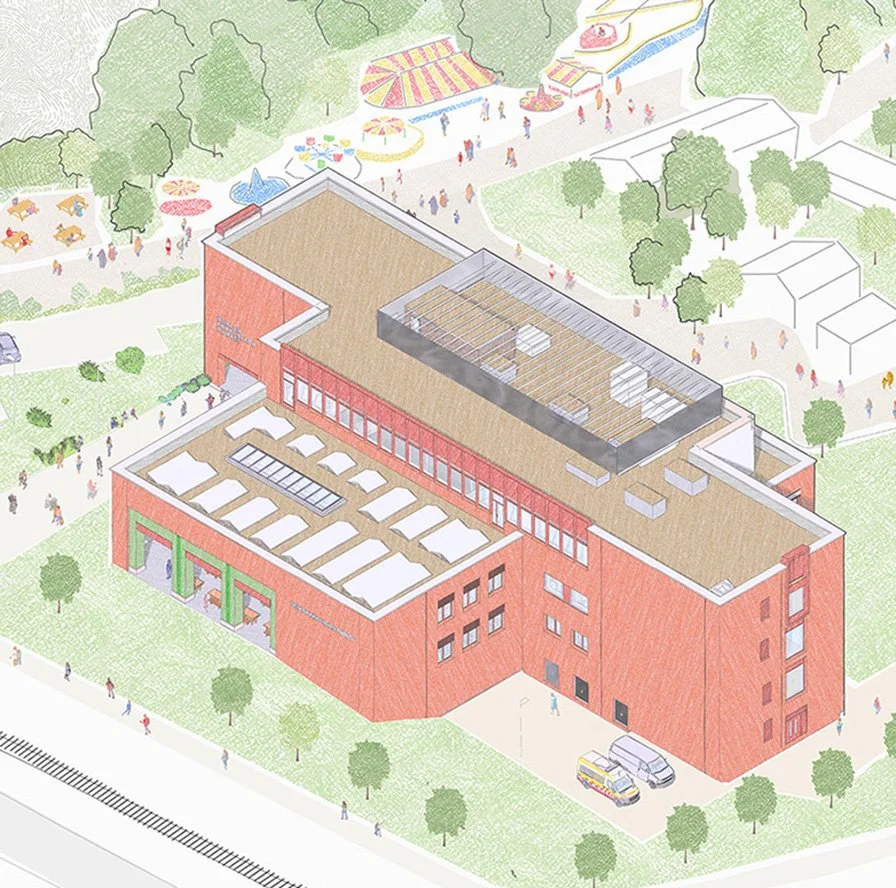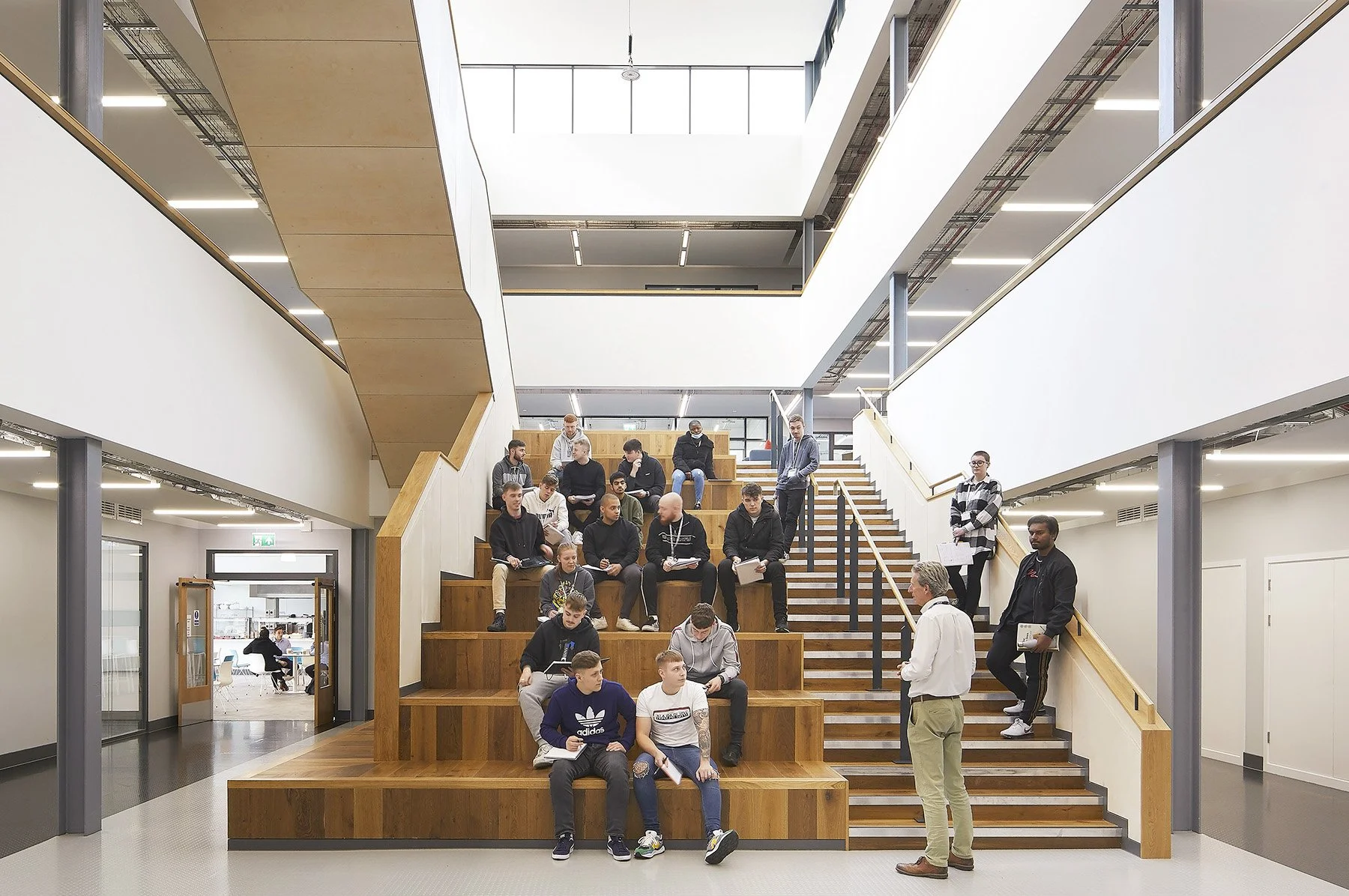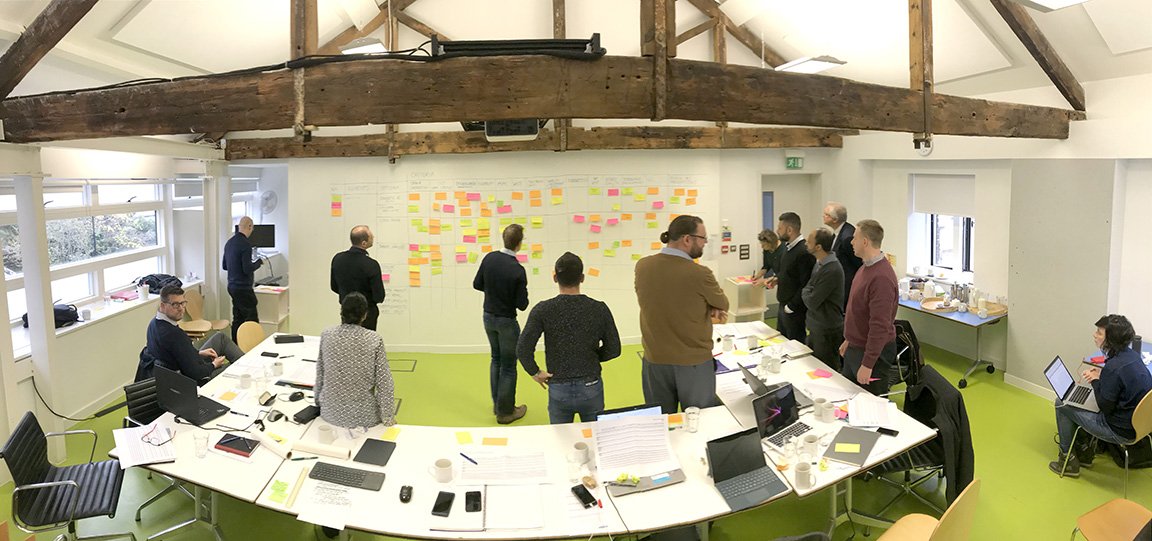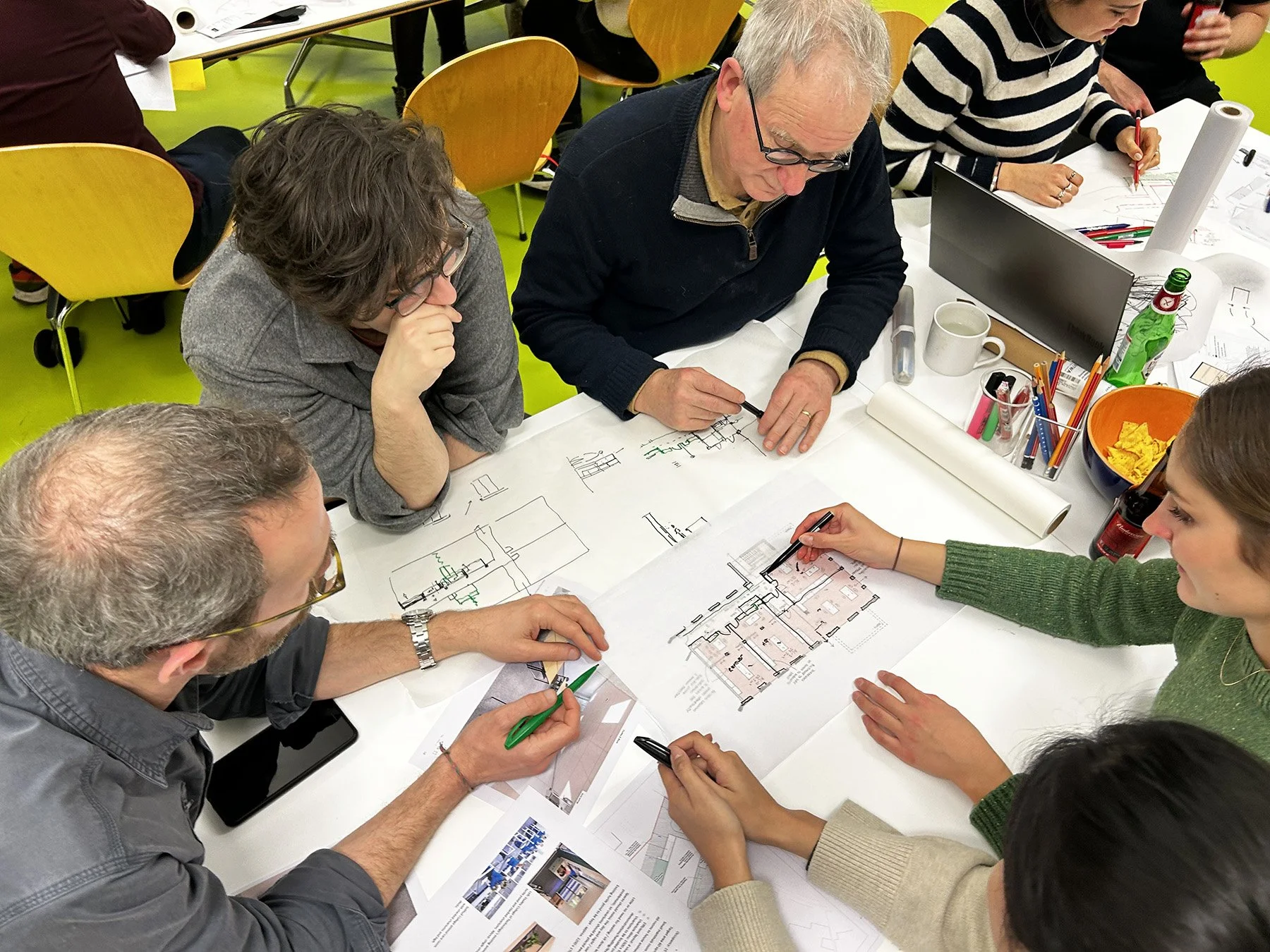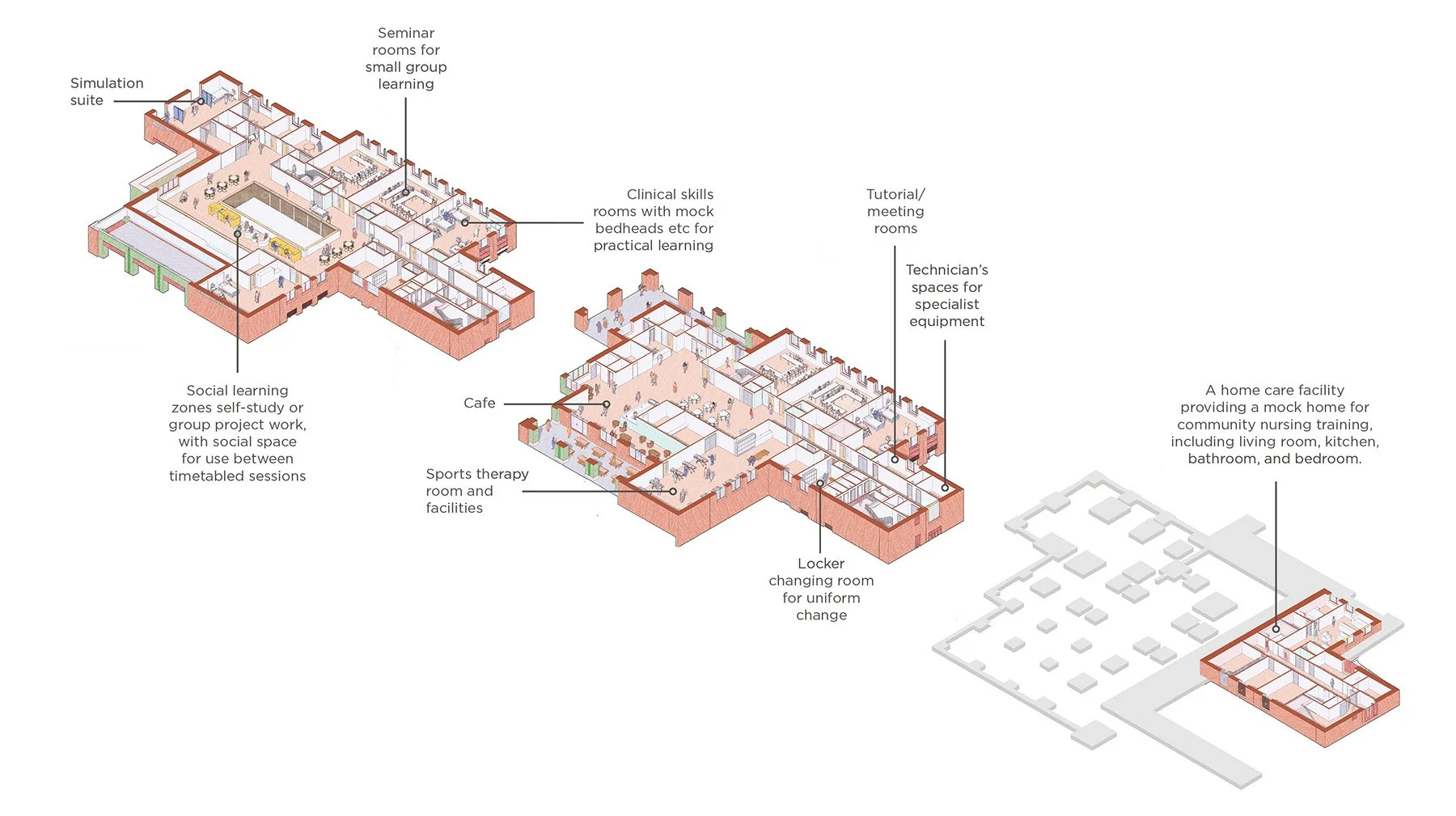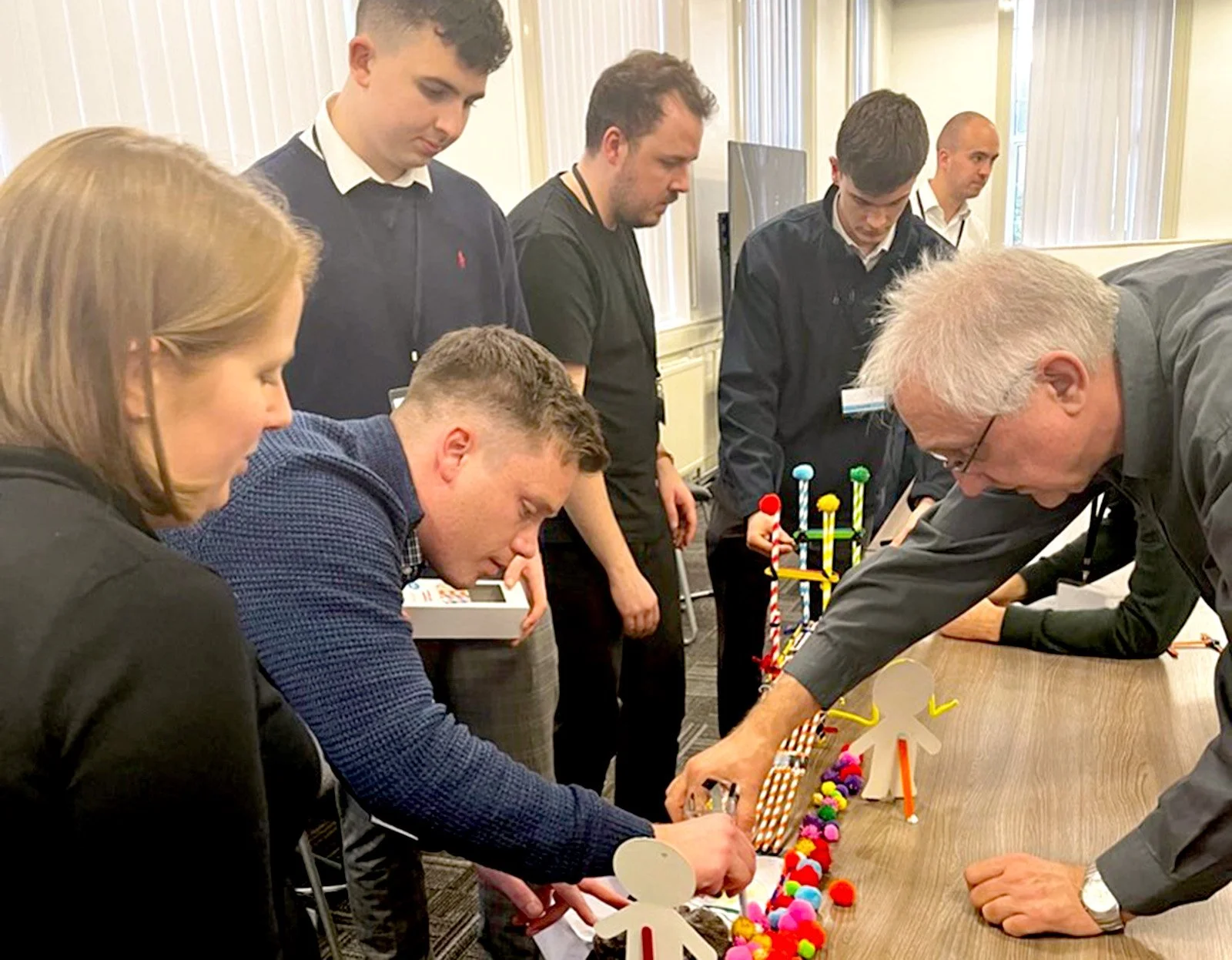Learning by Doing
The IPI model in practice at Dudley - a client’s perspective…
Cullinan Studio has now worked with Dudley College of Technology on three projects using the pioneering Integrated Project Insurance (IPI) model. IPI promised to deliver a new, better way of building by fostering true collaboration and shared responsibility. But how has it worked in practice, and what are the lessons learned?
We spoke to Steve Johnson – Executive Director of Estates and Capital Projects at Dudley College – to get the client’s point of view.
“In my view, every major construction project should be delivered using the IPI model. Nothing else matches it for collaboration, clarity, and end-user focus.”
- Steve Johnson, Dudley College of Technology
When Dudley College of Technology set out to transform its campus in the mid-2010s, it chose to do things differently. In place of the adversarial, claims-ridden contracts that had defined previous building projects, it embraced a pioneering new model: Integrated Project Insurance, or IPI.
As Cullinan Studio realised when we embarked on our first IPI project with Dudley - the Black Country & Marches Institute of Technology – IPI promised something radical: a collaborative, insurance-backed approach that aligned all parties around shared goals.
Since then, the IPI approach has been used on two more major Dudley projects – the Animal Studies Centre and now Health Innovation Dudley – with Cullinan Studio closely involved in both.
Executive Director of Estates and Capital Projects, Steve Johnson, has been a key figure throughout. Based on his experience, he now believes that IPI should be the default for large public sector construction:
“In my view, every major construction project should be delivered using the IPI model. Nothing else matches it for collaboration, clarity, and end-user focus.”
Cullinan Studio’s first IPI procured project with Dudley College - The Black Country and Marches Institute of Technology.
Why IPI?
Dudley College's shift to IPI was born out of frustration. A previous project delivered via traditional design-and-build had ended in arbitration, with the College forced to set aside a £2 million reserve. The experience left a deep impression.
When Johnson encountered IPI, introduced by industry veteran David Bucknall of RLB the model's ethos felt better aligned with the College's values: team-based, outcome-focused, and committed to improvement.
Unlike conventional procurement, IPI brings together client, consultants and contractors into a single legally bound alliance, backed by an integrated insurance policy. This means that the risk level is known, limited, and shared, and collaboration is incentivised. When things go wrong, the goal is not to apportion blame but to work collectively to put them right.
“You don’t sit on opposite sides of the table,” says Johnson. “You sit on the same side – solving problems together.”
Optioneering workshop in the early stages of The Black Country and Marches IoT project, involving all members of the Alliance Team, including the client, architect, contractor, and engineers.
Building the Alliance
The IPI process begins with an intensive period of team selection, in which prospective partners are assessed not only on their technical credentials, but on their behaviours and collaborative mindset.
This includes a series of behavioural workshops that simulate project scenarios to test how well different individuals might work together.
“I was sceptical at first,” admits Johnson. “But those sessions really do reveal who’s likely to collaborate and who isn’t.
“Cullinan were great team players” he adds. “Pragmatic, responsive, and always focused on how the building would actually be used. They were also open to adapting existing spaces rather than just building new ones, which made a big difference on a tight budget.”
Lessons learned and evolving leadership
Once underway, IPI projects typically take longer to 'norm' – to find their rhythm as a team. The process can feel unfamiliar at first, especially for subcontractors and supply chain partners used to clear hierarchies and adversarial behaviours.
Some Tier 2 and Tier 3 subcontractors, Johnson notes, took a little while to appreciate the benefits of its forecast-based payment system.
"A lot of them said, 'You're offering to pay me in 21 days? That's better than I usually get,' without realising the system could offer even more flexibility and speed."
But once the team has formed, the model allows for high levels of design integration, shared decision-making, and rapid problem-solving without contractual posturing. At its best, the alliance becomes a single brain with many hands.
IPI is still in its infancy, and each project is part of an ongoing learning journey. One issue that emerged on early projects was the question of leadership: with risk and authority shared across the alliance, it wasn't always clear who should lead at different stages.
On Health Innovation Dudley (HID), the most recent IPI project, the IPI facilitators reinforced a “Trinity of Leadership” structure, with defined leads for Design, Procurement and Construction. This helped clarify roles and maintain momentum during complex phases.
HID also tested the model in a different governance context. Unlike the previous two IPI projects, where the College was both client and end user, HID is commissioned by Dudley Metropolitan Borough Council, with the College as a key stakeholder. Johnson notes that less direct client involvement has led to slower decisions and reduced cohesion, reaffirming the importance of consistent leadership and client presence.
Cullinan Studio’s third IPI project - Health Innovation Dudley - currently on site.
Not an ‘easy’ option - but a better way
One of the strongest examples of IPI in action is the Animal Studies Centre (ASC), which was a first outing for ‘IPI Lite’. The original project brief called for demolition and new build. Challenging this approach, the IPI Alliance team worked in an open integrated way to demonstrate that a sustainable retrofit could achieve the same functional outcomes with a far lower carbon footprint, for the same cost – and including a 20% reduction to the build cost to account for VAT.
“We couldn’t have achieved what we did without that integrated, collaborative way of working,” says Johnson. “The team even had the opportunity to change the design completely from new build to repurpose – I can’t think of any other delivery model that would have enabled that and it certainly gave us as a client what we wanted in terms of our carbon footprint”
IPI, he believes, offers not just better value for money, but a better product. The difference lies in the quality of decision-making: real-time, multidisciplinary, and focused on outcomes, not contracts.
That said, IPI is not an easy option. It requires a well-informed client and a willingness to actively engage with the process.
“You can’t bolt IPI onto a traditional job,” Johnson says. “You have to commit to it. But if you do, the results can be transformational.”
IPI also requires cultural maturity: trust, openness, and shared accountability. Without those conditions, the model risks stalling.
“If someone’s not performing, you don’t just sack them. You work out why, and try to fix it. That’s a mindset shift for a lot of people.”
The deep retrofit of an existing Dudley College campus building to create a purpose-built home for the Animal Studies Centre was procured using a ‘Lite’ version of IPI.
Looking ahead
With more projects under their belt and lessons learned on each one, Dudley College and its partners have shown that IPI can deliver. But they have also shown that it needs the right ingredients: an aligned team, strong leadership, and above all, a client willing to step up and stay engaged.
A final word from Steve Johnson:
“IPI isn’t perfect. But when it works, it’s better than anything else out there.”
Steve Johnson (left) in a project team building and alliance workshop in the first stages of the Animal Studies Centre project.
At Cullinan Studio, we've always believed that true collaboration leads to better buildings. Our work with Dudley College of Technology on these pioneering IPI projects has deepened that belief – showing that while IPI is challenging, it can unlock remarkable results.
If you're exploring IPI for your own project and would like to talk about our experience, we'd be happy to help. Contact Carol Costello.
IPI Prospectus - read more about how the Alliance Partnership delivered outcomes that exceeded expectations on The Black Country and Marches Institute of Technology in terms of programme, cost and running costs; and how Environmental, Social and Governance were an integral part of that success.



